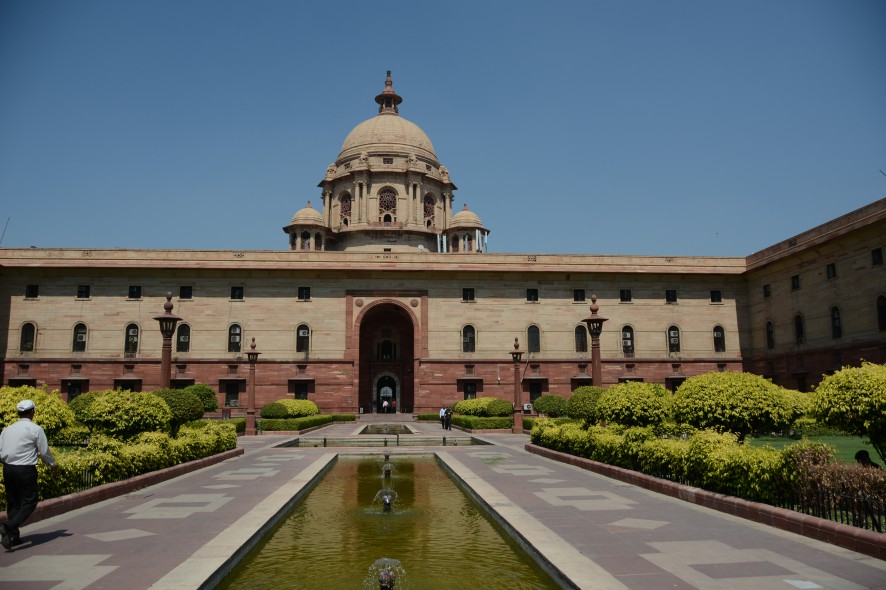In his Budget Speech of 2015-16, the Union Minister of Finance and Corporate Affairs Shri Arun Jaitley had announced the creation a sector-neutral Financial Redressal Agency (FRA) to address the grievances of retail consumers against all Financial Service Providers (FSPs). This follows from the recommendations of the Financial Sector Legislative Reforms Commission (FSLRC), which had, in 2013, recommended FRA as part of the Regulatory Framework designed to foster customer protection and independence and accountability of Regulators. The Task Force, constituted in June, 2015 as part of the preparatory work for FRA, had submitted its Report on June 30, 2016. The Central Government now invites the comments of stakeholders and public on the Report of the Financial Redressal Agency by 31st January, 2017.
Report of the Task Force
The Task Force found that the current framework offers only sub-optimal outcomes for consumers, for reasons which include the following:
- Varying approach, processes, capacity, service levels and powers to redress complaints. The average consumer is put under unnecessary stress when required to approach different redress agencies based on the nature of the product. This stress is further amplified due to varying levels of consumer protection across regulators.
- Inadequacy in powers to handle all categories of complaints. In some instances, regulated FSPs are not covered within the scope of the concerned regulator’s redress functions. Further, there is a lack of powers to award compensation in some cases, pushing consumers to courts/ consumer forums.
- Little room for specialisation as present systems do not have a specialised cadre of redress professionals.
- Possible conflict in role. A large number of complaints on a particular issue could reflect regulatory and supervisory gaps. It would helpif feedback from complaints flows to the regulator through an independent mechanism. In addition, tasking regulators with resolvingindividual retail complaints takes away their resources for discharging core supervisory functions.
Design of the FRA
- FRA design offers a simplified resolution process, allowing retail consumers in distant and remote locations to pursue effective remediesagainst FSP, without imposing significant costs on them. It will try to resolve all complaints through mediation. Cases where theparties are unable to reach a settlement would be resolved through a light-touch adjudication process. It will discourage court-likeprocesses. The FRA will establish a front-end presence in diverse locations for consumers to submit complaints.
- The remedies awarded by the FRA may include (i) directions to the FSP to take remedial steps; and (ii) payment of compensation.
- The accountability of FRA will be ensured through robust requirements on disclosure and performance review. FRA will provide anindependent feedback loop to regulators on complaints, including information on complaints received against unregulated FSPs, with a viewto assisting them in strengthening consumer protection regulation and supervision.
- Consumers will be able to appeal against the orders of FRA at Securities Appellate Tribunal (SAT). This would standardise theavailability of such an independent mechanism across the financial sector.
Organisational Design
FRA would be managed by a Board to the appointed by the financial regulators, in consultation with the Government of India (GOI). It would also have an Independent Assessment Officer to consider complaints against the FRA’s redress function arising out of issues related to its standard of service. It would run an efficient process to manage vacancies.
New Financial Consumer Protection Redress Law
The Task Force has stressed that for the FRA, which represents the curative aspects of the consumer protection, to be effective – the preventive aspects, to be implemented by the regulators, need to be simultaneously strengthened. It highlighted the need for basic protections (articulated by FSLRC) to be provided for in law through a new financial consumer protection and redress legislation to (i) empower FRA to provide redress; and (ii) strengthen preventive regulatory framework on consumer protection for implementation by the regulators. This law should be created by adopting the relevant consumer protection provisions from the Indian Financial Code (IFC) 1.1.
Funding Requirement and Business Model
The Task Force has recommended an initial budget of about Rs.100 crore to operationalise the FRA.
The Task Force expects the proposed FRA to be largely cost neutral. The expected additional expenses over current cost would largely flow towards improved access, effectiveness and speed of redress to the retail consumers.
The Task Force has recommended that the regulators in consultation with the FRA should devise a model to levy fees on the FSPs. These levies should be collected by the regulators as part of its existing mechanisms on behalf of the FRA. The fee model should comprise of (i) abase flat fee, (ii) a variable fee based on the size of the entity and (iii) Number of complaints against the entity and the stages at which the complaints are resolved. No fee should be charged to the consumer.
Implementation Steps
1. Set-up a shell FRA through an executive order. Recruit the leadership and make the requisite budgets available.
2.Procure a Primary Consultant to assist in scaling-up the shell FRA.
3.Empower a statutory FRA through a financial consumer protection and redress legislation. The Task Force has recommended the following transition plan:
i. Phase I – 3 months: Empower the FRA to redress complaints being handled by Insurance Regulatory and Development Authorityof India (IRDAI), Insurance Ombudsman, and Pension Fund Regulatory and Development Authority (PFRDA).
ii. Phase II – 1 year : Empower FRA to redress complaints by retail consumers against FSPs regulated by Securities and Exchange Board of India (SEBI) as well as retail complaints that are handled by Reserve Bank of India (RBI) and Banking Ombudsman
Ministry of Finance







